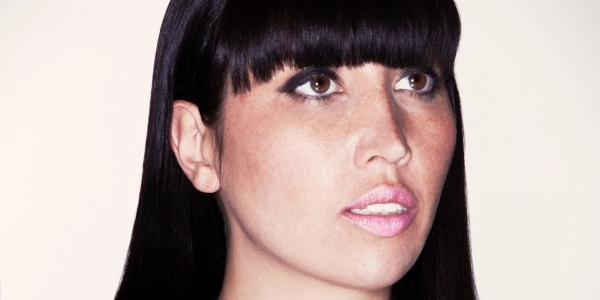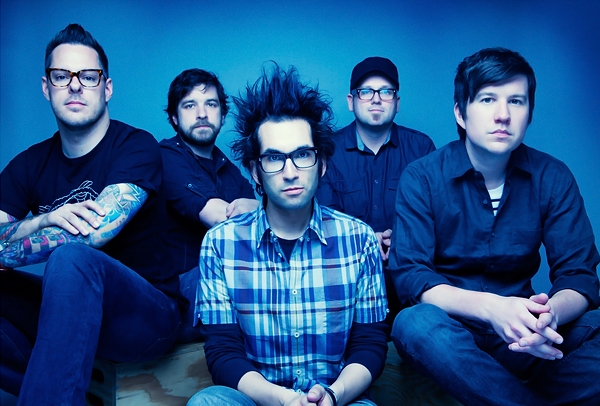That’s from an interview Sydney’s Catherine Kelleher gave to music blog Primary Colours back in January 2010. The album she’s referring to came out last Friday May 4, 2012. This may not be an eternity by current Australian industry standards (looking at you, Avalanches), but certainly no one can accuse her of rushing her debut out to capitalise on the success of her 2010 breakout single, Swimming Pool.
“Yeahhhhhhh,” says Kelleher sheepishly. “I think we were planning on finishing the album in 2010, releasing a single at the end of the year, and then the album… I feel like I’m about to explode with it, you know? With relief that it’s going to be out in a week and a half!”
The album in question, now that it’s here, is titled The Warmest Place. Considering some of the songs were written as many as five or six years apart and in varying states of grief, contentedness and confidence, it’s a remarkably coherent statement from an artist who started in DIY punk and dipped a toe in hip hop on the way to unabashed, complex pop music. “Yeah, I’ve got cred, I paid my dues!” she says with a wry laugh, referring to her late-adolescent days as the singer of three-piece punk outfit Kiosk. (Her bandmates, Jack Mannix and Angie Bermuda, went on to play in Circle Pit and Straight Arrows.)
DIY has been Kelleher’s MO since those early days; she first learned how to perform on stage with the band, and then as Kiosk wound down (following a two-month US trip and, almost immediately upon the band’s return, the sudden death of Kelleher’s father), began experimenting with beats and vocals at home from around 2006. She released the Anniversary EP two years later, Swimming Pool in 2010, and the Swimming Pool Party remix EP last year – slogging away all the while on the full-length with a rotating cast of producers. These included Andrew “ Toni Toni Lee” Elston, GLOVES, Luke Foskey (Youth), members of Van She and Julian Mendelsohn – but the biggest payoff came from working with vocal producer Bry Jones. “I realised when I started working with him that to achieve what I wanted to achieve with the demos that I had, there was a lot of work to do in terms of writing, and becoming a better singer as well,” Kelleher explains. “I was very intimidated by studios, I always felt really nervous and I was never breathing properly. And he’s a vocal producer, he gets you there – it’s like a therapist or something, they make you feel super comfortable or find out what’s stopping you from getting what you need to get.”
Jones was also the one who convinced her that it was OK to go full-on, bubblegum-glossy, 100 percent unabashed pop. The tracks that had made her name with critics and fans – the sexually charged Swimming Pool and 2008’s rich, grief-fuelled August – were dark and seething, albeit tempered by Kelleher’s forthright, everygirl vocals. “I think August and Swimming Pool tap into something a lot more personal, in terms of the emotional vulnerability, than some of the other tracks,” she admits. “Funny thing is, Swimming Pool and Satellites and That Girl were the most recent tracks that were written for the album; World Is Ours is one of the first tracks that I demoed, which people always get surprised about because it’s the poppiest.
“When I started working with Bry later on he said, ‘Look, you can’t go half-arsed into [making a pop record]’,” she goes on. “I had these demos and it was pretty obvious that I was starting to go in that direction but holding back – it was all in this confused state. And he said, ‘You have to go all the way, you’ve gotta own it, or it’s not going to work, people aren’t going to connect with it.’”
The Warmest Place blends its pop influences – from Frente! and Fleetwood Mac to Roxy Music – with a fiercely independent sensibility, but pop songs with substance don’t arrive with a neon sign perched atop it saying Not Your Average Dance-Pop Love Song, and it’s easy for critics and casual listeners alike to be dismissive when presented with something so immediately accessible. Kelleher says one review of lead single Satellites rankled for precisely that reason. “I try not to read reviews, but occasionally I’ll come across one and it’ll be the worst possible one,” she says ruefully. She tells me that the subtext tends to be that “making pop music is not honourable in any way – that it’s not art, that it’s not difficult, that it’s not something that can be respected. That it’s something that you do if you want to make money. That’s [that writer’s] opinion; if he doesn’t like it, music is subjective and that’s fine. But I put a lot into these songs and I never expected them to do anything for me other than give me the opportunity to be able to play some shows, and the excitement of finishing something. I don’t have any expectations, and I never have.”
That said, Kelleher gets a kick out of spotting old fans dancing to effervescent pop tunes like the Go-Go-inspired new single The World Is Ours – the same ones who sweated buckets watching Kiosk in tiny shitbox venues. “I like the punk kids being into it – that makes me pretty happy. People that I’ve known for a while, who are just so hate-everything.” There’s a refreshing lack of cynicism among the broad spectrum of people who are digging on Catcall that’s reflected in the attitude of the album itself. “That [un-cynical vibe] was something I was trying to achieve, and a lack of elitism as well. There’s a lot of elitism in music at the moment.”
Kelleher is one of the most fun Australian musicians to follow on Twitter – rather than using it as a promotional tool, it’s a candid and hilarious outlet for her to “talk about tennis, and try to flirt with George Megalogenis”. Most of the few music-related Tweets, particularly in the lead-up to the album being completed, are so blunt and exasperated a casual observer might think she’s ready to throw in the towel most days. “[Music is] like a boyfriend, I go through emotional phases with it – sometimes it drives me insane and sometimes it’s the best thing in my life,” she sighs. “Because it’s been with me so long and it’s shaped my friendships and my relationships and every choice I’ve made, it’s an intense experience. I hate it and I love it.”
But six years of Catcall have taught Kelleher that forward momentum is what serves her music best. “I always used to think I was one of those people who would never be able to think about the next album until the first one was completely done… But now I’m thinking if I don’t start writing soon, it’ll probably take another three years to get another album out,” she sighs, “and I’ll be 80 by then. I’ll be far too old.”
BY CAITLIN WALSH

